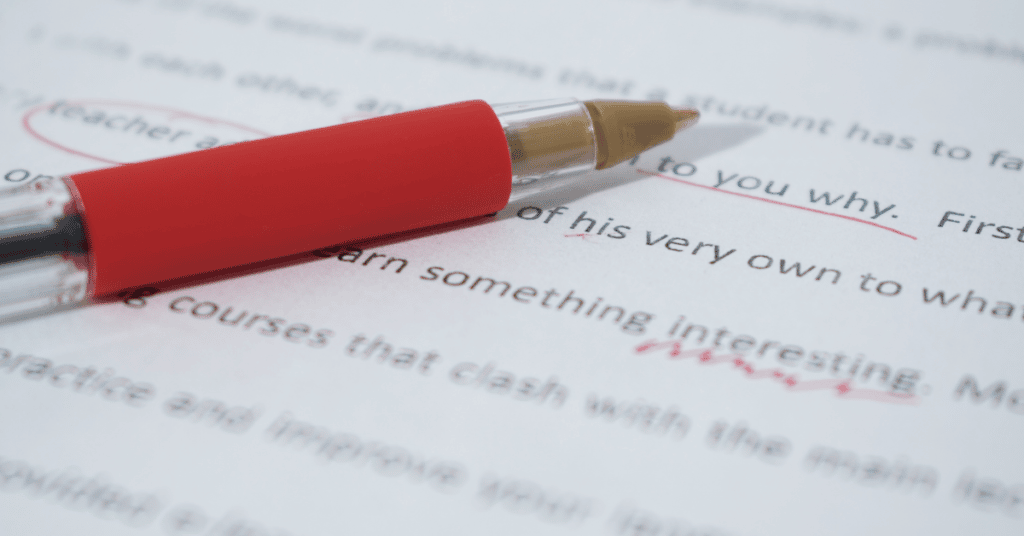The O level English paper is made up of several sections.
Understanding the demands of each one will help you to cross that exam hurdle effectively.
I have listed the main concerns of each section.
#1 Visual Text
This is an inferential section with an illustration accompanied by text form.
5 questions will follow asking you to give your opinions. I have detailed the types of questions you may expect in the O level English paper.
a) Illustration questions
The main parts of the visual text include the illustration and the heading. The main illustration is usually a drawing depicting a popular idea/ theme.
The illustration demands that you examine the message it reveals. This is subjective and the clue is that it usually relates to a main theme. The student has to infer this carefully.
b) Heading
This may be divided into 2 parts. In some cases, there is a main heading and a subheading.
The main heading may reveal the main intention while the sub heading will reveal another aspect of the theme.
There will be questions relating to identifying the main theme and the sub theme.
c) Caption questions
Caption questions are additions to photo illustrations. There may be just one or several. These are different from the main illustration which may cover the entire visual text. The main illustration will be a drawing.
The photo illustrations are smaller and will include captions revealing more information about the photos. Usually when the main illustration appears, photos do not. In rare cases, both appear.
d) Sub text questions
Sub texts are small chunks of information in paragraphs. These may appear below the main illustration. They reveal various important information such as what is going on, where, when etc.
e) Infer
The main purport of the O level English visual text is to infer what the illustration and texts convey. This is to reveal what the message is. The student has to decipher this on his own.
#2 Editing O level English
a) 10 blanks
Out of the 10 blanks, 2 are correct.
What is required for the answers?
b) Synthesis words, transformation, preposition
Who, which etc transformation answers are required. Synthesis connectors will also be needed. Prepositions also sometimes appear incorrectly. Eg, Although, so etc.
c) Adjective
Adjectives are very commonly seen as answers. They appear in incorrect forms. So, look out for these!
d) Verb tense
These appear in incorrect forms and are regularly seen in editing O level English passages.

#3 Composition
This section tests you on your style of writing. Of all the sections in the O level English paper, this is the most stringent in assessing you for your language, content, stylistic writing and vocabulary. There are a few genres in this section, so consider which one suits you before selecting.
a) Narrative
Story telling from a personal point of view.
The narrative type of composition delves into your own experiences. This is one of the experiential types of writing.
Narrative is a story form of writing where you literally ‘tell’ your experience in a given situation.
b) Reflective
This is another experiential type of writing in O level English.
You need to tell your experience with a moral or value attached.
This is the part where it differs from narrative.
c) Personal recount
Personal recount is similar to narrative but it is based on an account of what happened to you. Therefore, it is hinged to reality.
And this is experiential too where the learning process from the account needs to be discussed in the concluding paragraph.
d) Descriptive
This is your view of what you observe around you.
Your observation skills are paramount, so brush up on your skills in observing and describing them accurately and creatively.
e) Expository
This is based on facts. The topic range is wide. It could be purely subjective about a discussion on the way people spend their leisure time on a current affairs topic such as the need to conserve our resources.
Most of the topics are based on social topics. You need to have content to be able to write this properly.
f) Argumentative
Argumentative essays rely on content. Your knowledge of society and the world is needed. So, beef up on your reading skills and watch the news!
Get yourself ready to embark on writing that demands that you are well-read. Argumentative and expository writing are fact-based and require attention to details.
g) Hybrid
These are the most popular types of O level English questions. They are a combination of 2 genres. These could be descriptive topics that demand a personal learning experience.
You will have to blend the techniques from both types of writing. Once you practise these, they can be rather easy to do and score in.
#4 Situation Writing In O level English
This is based on your active communication skills. There will be two pages in the O level English question. One will be the instruction page and the other will enclose the illustrations with captions.

a) Email
These are usually either formal or informal. You may even be asked to write an email letter. You will need to observe the standard instructions for each type.
Date, subject, whom you are writing should be included. The tone is important so if you’re writing an informal letter, reveal your warmth and goodwill.
b) Letter
This is similar to email writing. There is formal and informal.
The difference is that you will be asked to sign off at the end. So, the standard letter writing techniques apply.
c) Speech/ Proposal
The speech is an address to the audience. This is an active communication so you will need to address them. Usually, it will be to tell the audience about what is going to happen.
You could be a master of ceremonies or someone who is describing a proposal. This could be a proposal to construct a building annexe in the school for a particular function.
The proposal could be targeted at gaining approval from the relevant authority. This will be rather formal and will require you to list out the advantages to convince the person/ team it is intended for.
d) Report
Most reports are about something serious that took place. It could be a report about an incident or a mishap.
You need to pay attention to whom you address this to and the way you sign it. Reports and accounts are meant to be straightforward including the relevant details only.
e) Account
Accounts are usually an eye-witness account of a serious incident. Similar to a report, it should follow the instructions carefully and convey the gravity of the situation in the tone.
#5 Comprehension
There are 2 types of O level English passages, Narrative and Descriptive. You will need to answer questions according to these O level English passages. The questions are aimed at discovering your language strengths and your ability to analyse facts.
a) Narrative Text
i) Account or narrative dialogue
There will usually be dialogue portions in this passage. They convey the emotions of the characters, so expect questions asking you to infer how they are feeling and what they may do next.
ii) Literary devices
These are based on metaphors, similes, irony and tone. You need to brush up on these devices as they will appear in your questions asking you to explain in detail.
iii) Language device questions
This will be the ‘unusual’ and ‘effective’ questions. They force you to understand the language component where you need to understand what the intention of the speaker, narrator is. Or, you may be asked to analyse and infer what the phrases mean. It is a bit tricky and you need to be good in your vocabulary.

b) Descriptive Text
These O level English passages are more factual and will have a discussion on what is going on in the world with different points of view.
i) Facts analysis
Analyse your facts and discover what it is all about! Read carefully and understand the points revealed.
ii) Bubble questions
They are different opinions expressed by ‘characters’ with opinion bubbles.
This is rather accessible as you need to understand what each character is saying. There will be 2 and each will have an opposite opinion. Discover the corresponding views in the O level English passage and support the view in your answer.
#6 Summary
You will be given a question on summarising a portion of the O level English comprehension passage to 80 words. And you are not supposed to lift. The answer should adhere to the main point in the question. You will be marked for content, organisation and grammar.
a) Editing
Your editing skills should be sharp and precise! Learn the technique of reducing a longer sentence to a shorter one without eliminating the main meaning.
b) Paraphrasing
This is all about vocabulary. Synonyms for phrases and words are needed. The more you are able to paraphrase effectively, the better your summary will be.
Well, that’s all folks! Do not be daunted by the number of subsections in the O level English paper.
Each one is distinct and you will need to apply slightly different skills for the sections.
Take each one as a challenge and you will find that it may be a rather interesting and meaningful journey for you! Good luck!
